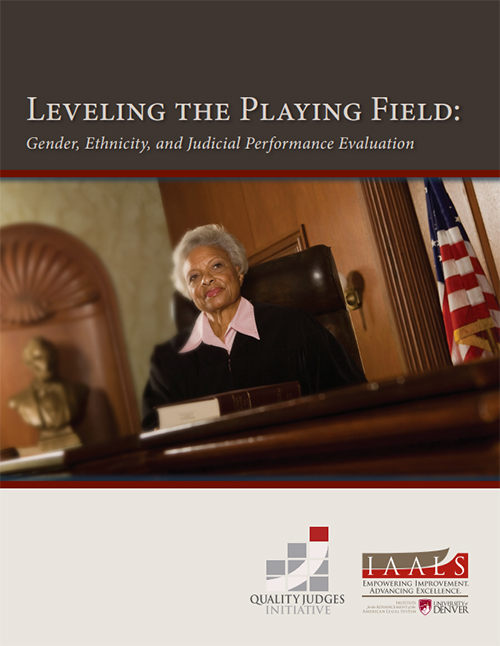Leveling the Playing Field
Gender, Ethnicity, and Judicial Performance Evaluation
This study assesses whether, as some claim, there is empirical evidence that women and minority judges are evaluated less favorably than their Caucasian male colleagues.
We find that judges in four states with longstanding judicial performance evaluation (JPE) programs generally receive high marks from court users but that there are a few areas in which women and minority judges receive lower scores. We consider whether these differences are the result of implicit biases, and we offer recommendations for minimizing the potential that such biases may come into play.
These recommendations also describe a model process for developing JPE surveys and offer sample surveys created through such a process.
How can we help? Consulting Inquiries:
iaals@du.edu


